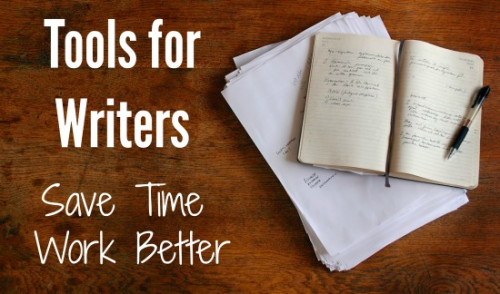By Angela England
I have a ton of projects at any given time. In fact, as I was just offered the position of Organic Gardening Guide for About.com I will be busier than ever! I wouldnÂt survive all of that with five homeschooling kids, if I didnÂt have some great tools under my belt to make it easier.
Here are some of my favorites.
Steno Pads and Pencils
This seems so so eighteenth century, I know. But I carry half-sized steno pads with me everywhere for those times when I need to scribble something in analog. DonÂt think that high-tech is the ONLY way to go. When it comes to brainstorming and outlining it is often faster for people to Âthink out loud on paper and then translate that to digital once youÂve had that initial brain dump. I buy steno pads in bulk at SamÂs Club so I can easily scrawl in them whenever I want and they fit easily in the side pocket of the car, in the diaper bag, in my purse or laptop case, glove box, etc.
Poster Board or Big White Board
Large brainstorming sessions need bigger amounts of space. I have a technique I will use periodically to brainstorm about a hundred blog post ideas in less than an hour. I taught a workshop about it and you can watch the video here: Brainstorming Blog Post Ideas With Ease
The key is to write quickly and not be worried about how it looks or whether it makes sense. Or is spelled correctly. Get all the ideas out of your head and THEN focus on working them into a logical semblance of order.
Evernote
Speaking of working things into a logical semblance of order  Evernote is one of my favorite tools for capturing ideas on the go. I can clip a website, photo, screenshot, email, type a quick idea, etc from any connected device. My Evernote accounts link my phone, iPad, computer, laptop, etc., so I can easily grab that inspiring phrase from Facebook and plug it into Evernote to explore later. I can also gather research notes and materials and place them into Ânotebooks according to website or book project to help me find it easily later. EvernoteÂs robust tagging and search functions make it one of the best online filing systems IÂve ever used. For more tips on using Evernote, I love this post by Alli Worthington  10 Way to Use Evernote Like a Pro.
Scrivener
Whether IÂm writing non-fiction or fiction, Scrivener is my favorite place to write now. And not only books, but other long-form projects like courses, blog series, feature articles for magazines, and more. The features Scrivener offers writers make it the perfect tool for any professional writer. Call it a cross between Word, Evernote, and your favorite Moleskine. ItÂs the best online writing tool IÂve come across yet and highly recommend it for anyone who writes anything bigger than 500 words in length.
Dropbox
Writers often have to send large chunks of material. Whether youÂre sharing a project with a reviewer, sending your book to an editor, or working collaboratively with several people on a project, Dropbox is a great solution for storing and sharing large files. I especially love the ability to access Dropbox files while NOT connected to the internet (on the road with my laptop, for example) and update files (i.e., write more on my book or course or blog post series) and then have Dropbox automatically sync those changes with my main Dropbox account as soon as IÂm connected again. I can store a file in Dropbox and access from any of my other connected devices (including mobile) and from public computers by logging in temporarily at dropbox.com. Keep folders private or share as desired for easy-to-control privacy levels.
These are the main tools I use on a near-daily basis when it comes to writing. Some are free, some are paid, some are high-tech, some are as old as time. All impact the work that I do in profound ways. What are your favorite tools as writers?
